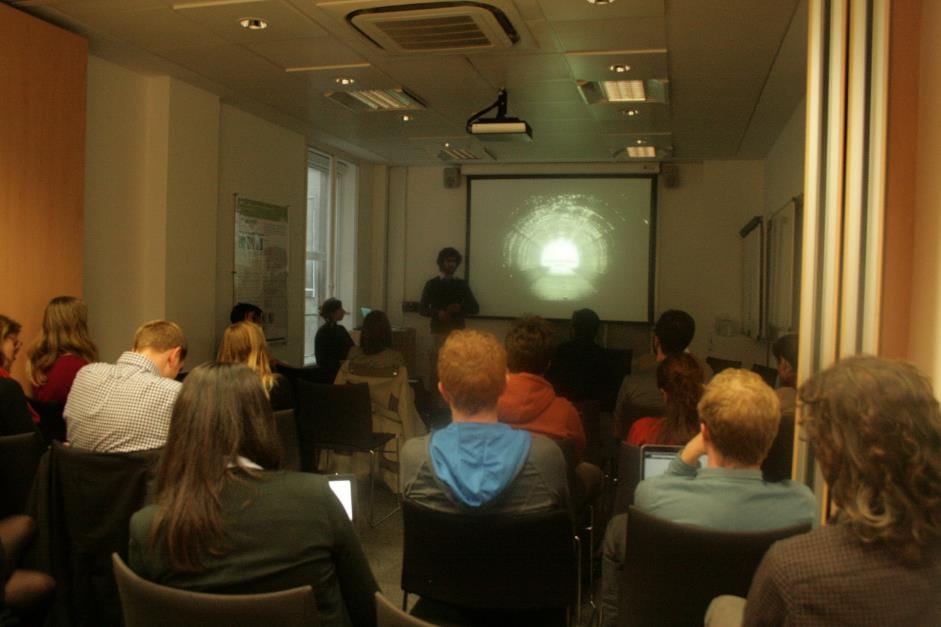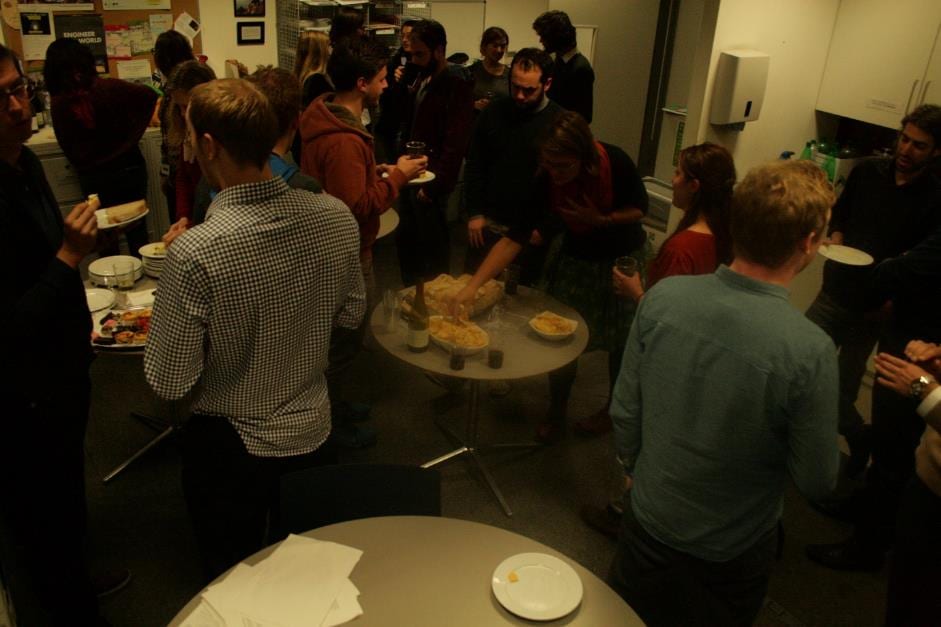‘Is there life after PhD?’ First event from the Energy Demand in Practice seminar series
By zcft023, on 20 January 2016
Blog by Virginia Gori, Pamela Fennell and Lisa Iszatt
Energy Demand in Practice is a seminar series focussing on the different roles and opportunities available within the energy demand field. The aim of the seminars is to explore the range of career paths that are available to PhD graduates, providing students with inspiration, advice on matters such as workplace skills that might be required, and networking opportunities. The Energy Demand in Practice team currently consists of Virginia Gori, Pamela Fennell and Lisa Iszatt, who set up this series in collaboration with LoLo management at UCL in response to feedback from students that more information was needed on careers in the field of Energy Demand. The events are primarily aimed at LoLo students but all UCL students are welcome.
Our first event “Is there life after a PhD?” aimed at exploring the range of possible careers in energy and investigating how to best use the skills acquired in the PhD. Two speakers introduced their ‘life after a PhD’; their career paths and the lessons they have learned along the way. This was followed by a panel session with recent graduates responding to a range of questions from the floor on topics such as internships, day to day tasks, gender equality and how to sell a PhD.

Presentations:
Dr Zack Gill (Willmott Dixon) and Dr Victoria Gay (Cofley – UK Energy Services)
Zack finished his EngD 4 years ago at University of Bristol. During the EngD he was working with a company, which proved to be a very positive experience for him. A key challenge for Zack after PhD was getting used to switching between projects very frequently – this was a big change from academia but he came to see the variety of problems to solve as an opportunity to learn new things, and he started viewing his job as an ongoing project. Zack found that taking a sabbatical after 18 months of work helped him with the adjustment between a PhD and life in industry.
Victoria has a mixed, non-energy-related background. She worked for the network rail during her undergraduate degree visiting construction sites, followed by a part time PhD in biodiversity. After the PhD Victoria worked in an energy investment company, which involved the creation of investment projects in renewables. Victoria’s current job as strategy manager involves energy efficiency consultancy on a broad spectrum. Even though Victoria’s PhD was not related to her post-PhD jobs, she found that the skills learned during her postgraduate studies – like communication and presentation skills, data analysis, budgeting and time management – have been of great importance in her career.
Question and Answer session
Zack and Victoria were joined by Dr Nish Rehmatulla and Dr Giorgio Castagneto-Gissey (both UCL Energy Institute) for a panel discussion chaired by UCL Energy Institute PhD student Carrie Behar. A few questions were pre-planned but most arose organically.
The first question was whether or not doing an internship during a PhD was beneficial, and the response was generally positive. It was felt that an internship was an opportunity to see what industry does, and could help with indecision about what to do next. One panel member found that there were different dynamics compared to academia, and that they were able to transfer some of the knowledge learned in academia to industry. Another panel member who spent more time working with a company during his studies enjoyed the balance of academia and industry.
There was a mixed response to the question of whether it is hard to get back into academia once you leave. One panel member felt that staying out for more than a year would be inadvisable, while others felt that experience in the field could lend a certain credibility on return to academia. Another felt that it was very much a case by case basis, and that the stage reached in an academic career before leaving would affect whether or not one could return at an equivalent level.
The panel was asked to comment on the difficulty of selling the value of a PhD to employers and colleagues, and the response was generally that it was not difficult, and that there was an appreciation for PhDs in industry in-part due to the self-motivation acquired during a PhD. One panel member had heard that some people say that “PhDs are overqualified”, although another commented that such comments are not necessarily a bad thing: it could indicate that a job might be boring! Another piece of advice was to be careful in accepting the first offer received as it might mean missing out on something better.
A question on whether the day to day activities were as expected turned into a discussion on job satisfaction. Some said that the workload was as expected and that the mixture between management and research was satisfying. Another commented that satisfaction in day to day tasks in academia depended on the role (research assistant or associate), which dictated how much freedom one had. Another said that being clear about what you want to get out of a job and communicating this with your employer is likely to make it more interesting. One panel member also commented that their perception of working life had been slightly different whilst studying, for example a course on negotiation that had seemed irrelevant had actually been useful in industry.
There were some differences in opinion on gender equality in the sector. One panel member felt that there were no issues or special treatment with females at their place of work. Another felt that the UCL Energy Institute and UCL in general tend to be better than industry, where things were improving but could still improve further. Another thought that women were always treated equally due to the strict rules that are in place these days, and that he had once missed out on a job that he would have liked as it was for women only. A female panel member reported having different feelings in different jobs about whether it was a disadvantage to be female. It was also noted that statistics on income don’t always reflect intended gender equality.
Overall the event threw up some interesting perspectives and dilemmas, and it helped that both the panel and the audience had a mixture of backgrounds and experience with industry and academia. The over-riding message seemed to be that there is life after a PhD (phew!) and that we are in a great position to negotiate the most exciting jobs. However this is not automatic, and it is important that we plan ahead, research where we want to be, and pay attention to advice and opportunities both from inside academia and industry.
For more details on the first event please see our blog https://blogs.ucl.ac.uk/energy-demand-in-practice/2015/12/11/is-there-life-after-a-phd-hear-from-our-very-first-seminar/
The next event will be on March 7th on Technology and Innovation in Energy Demand. For more information, check our blog https://blogs.ucl.ac.uk/energy-demand-in-practice/ or follow us on Twitter: @EiDemand.
One Response to “‘Is there life after PhD?’ First event from the Energy Demand in Practice seminar series”
- 1
 Close
Close





Great Friday read: @UCL_Energy blog by @LoLoCDT PhD students AB their 1st ‘Is there life after PhD?’ event https://t.co/eJ78gkgoyi